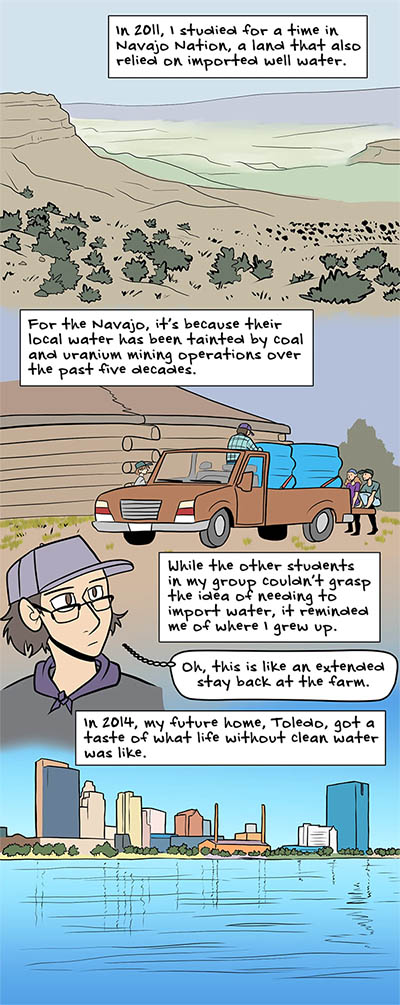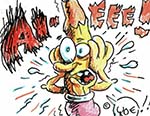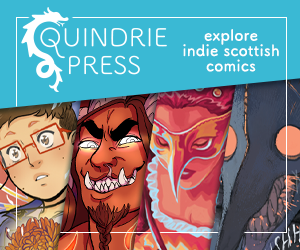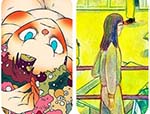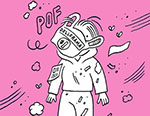Welcome to a third look from across our community on the effects of Generative AI on comics. Here’s our standard intro for the series…
AI “art” is already encroaching on our comics spaces. There have been allegations of its use on well known mainstream properties; popular digital platforms host AI comics regardless; AI art comics-making apps are prevalent; arts institutions that should know better have offered generative AI comics-making courses; and perhaps most disappointingly established professionals have experimented/published using it. It remains an existential threat to creativity and to our comics community.
And supporting community is, of course, a large part of what Broken Frontier is about. So, with that in mind, some weeks back we put out a call on social media for contributions to a potential series of articles discussing the subject. To repeat our stance from that initial shout-out we’re not here to create “balance” on this issue. We’ve made it very clear where we stand at Broken Frontier on generative AI. This is about creating a record for posterity of the thoughts of those in our scene experiencing, or concerned about, the negative impact of the theft machine on their livelihoods, practice and the future of the form/industry in general.
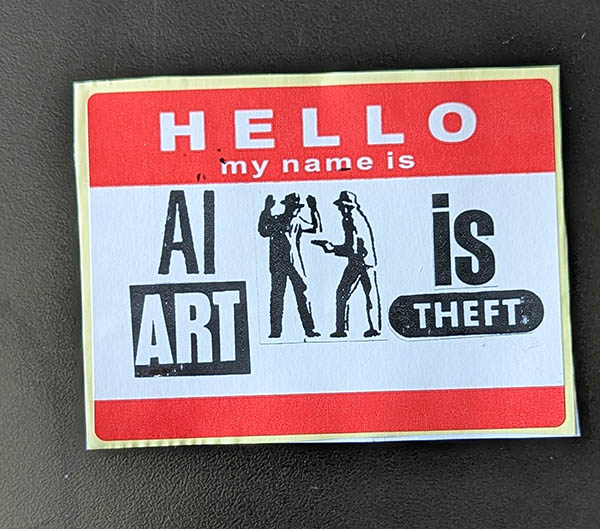
Art by Matt Martin
If you would like to contribute please refer to that guidelines article here. We would particularly like to hear from more actual comics artists to make this a broader and more relevant series! And don’t be concerned if your comments aren’t in any particular entry in the series. We’re splitting things up into manageable reading chunks week by week. So here’s some more thoughts on: What would you say to those advocating for the use of generative AI in the medium? And what are your wider concerns about its use in socio-political, educational or environmental terms?
Read all parts in the series in one place here
Kelci D Crawford, cartoonist, The Legend of Jamie Roberts: I have been making webcomics since 2013, and I oppose Generative AI in comics.
Everyone has their own reasons, whether it be because Generative AI is used by fascists to avoid paying artists so they can “stick it to the libs,” or because Generative AI steals art without credit, so those prompting the machine have no context or knowledge of who the sourced artists are or where more of their work could be found.
These are some of my reasons. The one that sticks in my craw the most is just how much dang water Generative AI uses.
Maybe it’s because I had done research on Lake Erie’s toxic algae blooms for Crucial Comix (which is available to read for free online, by the way). But freshwater access and keeping water clean is going to be one of – if not THE – biggest environmental challenge of our time.
Simply put, we can’t drink water if that water is being used to cool down machines that are generating fake news and images.
Just one prompt on ChatGPT uses 2 liters of water for every interaction. And that’s just ChatGPT, the text-based generator. Image generators use even more water to generate its slop.
And for what? So the one prompting the machine can get more likes on Instagram, a platform that will disappear before 2030? I’m not dehydrating myself or my crops so you can make yourself feel popular, bro.
At a time when our freshwater sources are getting even more privatized by corporations like Nestle, or being held hostage in places like Gaza, we need to stop wasting our precious water on a failed tech bro’s sales pitch.
Adam Karenina Sherif, academic historian and comics critic at The Beat: As a community, as a space, as a scene, as whatever – we have to think about the values we want to uphold together.
On a values level, Generative AI is fundamentally colonial and patriarchal. Wasting the planet’s natural resources and separating the worker from the fruits of their labour, this technology is doubly rooted in colonial extraction. And in its mechanics, the way these models are trained on existing “data”, Generative AI is also entirely reliant on the wilful dismissal of the question of consent – which I think we can say stems from patriarchal oppression.
I think we have to refuse to participate in the use and normalisation of this technology because if we accept it then we enact these values, and these become our values as a community. The history of the comics industry is very fraught, but we do have long traditions of defiant pro-worker, anti-racist, and feminist agitation – I hope we can reaffirm these legacies instead of yielding to exploitative convenience.
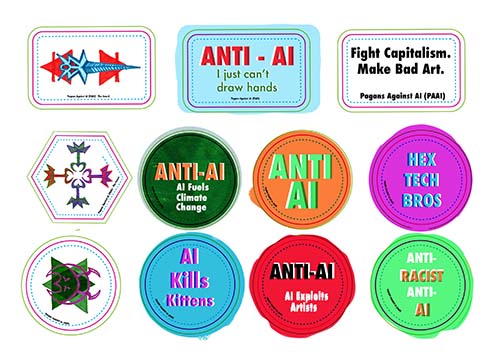
The sticker set from the Pagans Against AI Art zine
Chloe Starling, creator of Retrospective and co-organiser of inQ! Queer Comic Fair: My biggest worry about Gen AI being integrated into education, students being forced to use it when they don’t agree with it being integrated into their art practice. Young comics creators shouldn’t feel pressured into using Gen AI, they should be free to develop in their own way so they can grow and develop their own unique styles and stories.
Rowen Horton, writer/colorist of Days Worth Living: To those that advocate for the use of AI, consider any work that you enjoy that was created pre-2023. Films, music, books, and the like. When everything can be generated poorly by a machine, what will make any of those mediums special to you anymore? What is likely to happen if AI goes unchecked is it becomes the new industry standard, as we are already beginning to see. When it is all AI-generated, I know that everyone that advocated for it is going to beg, cry, and seethe about how nothing stands out anymore and ask for the “good old days” back. The hypocrisy of those advocates surprises me every day, to on one hand say “learning to write/draw/film is too difficult and time consuming” and then say “AI art is a learned skill that requires talent and time”.
The discussion continues next week with thoughts from more commentators. If you’d like to join in the conversation by contributing some thoughts to this series then please see the talking points guidelines here.





